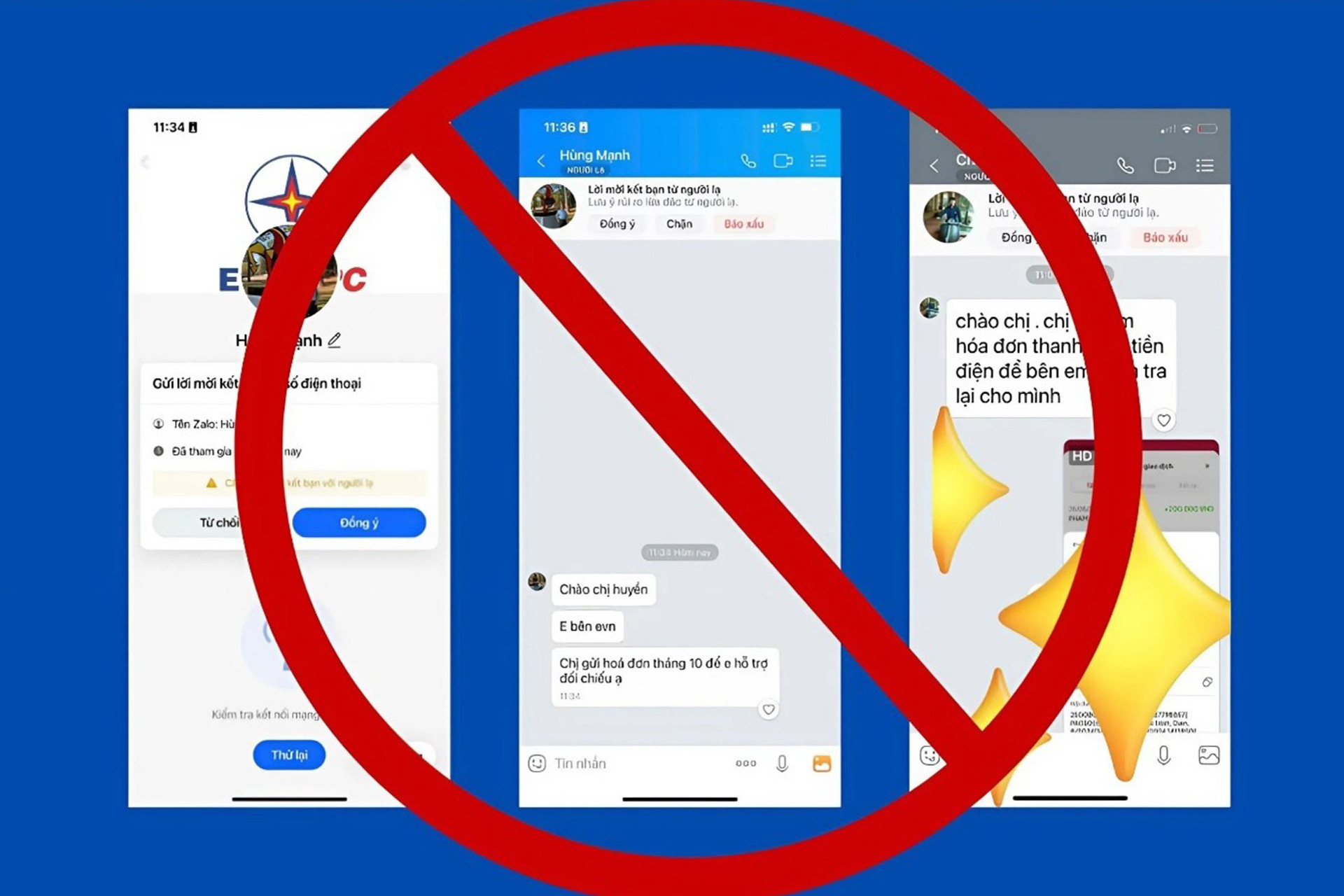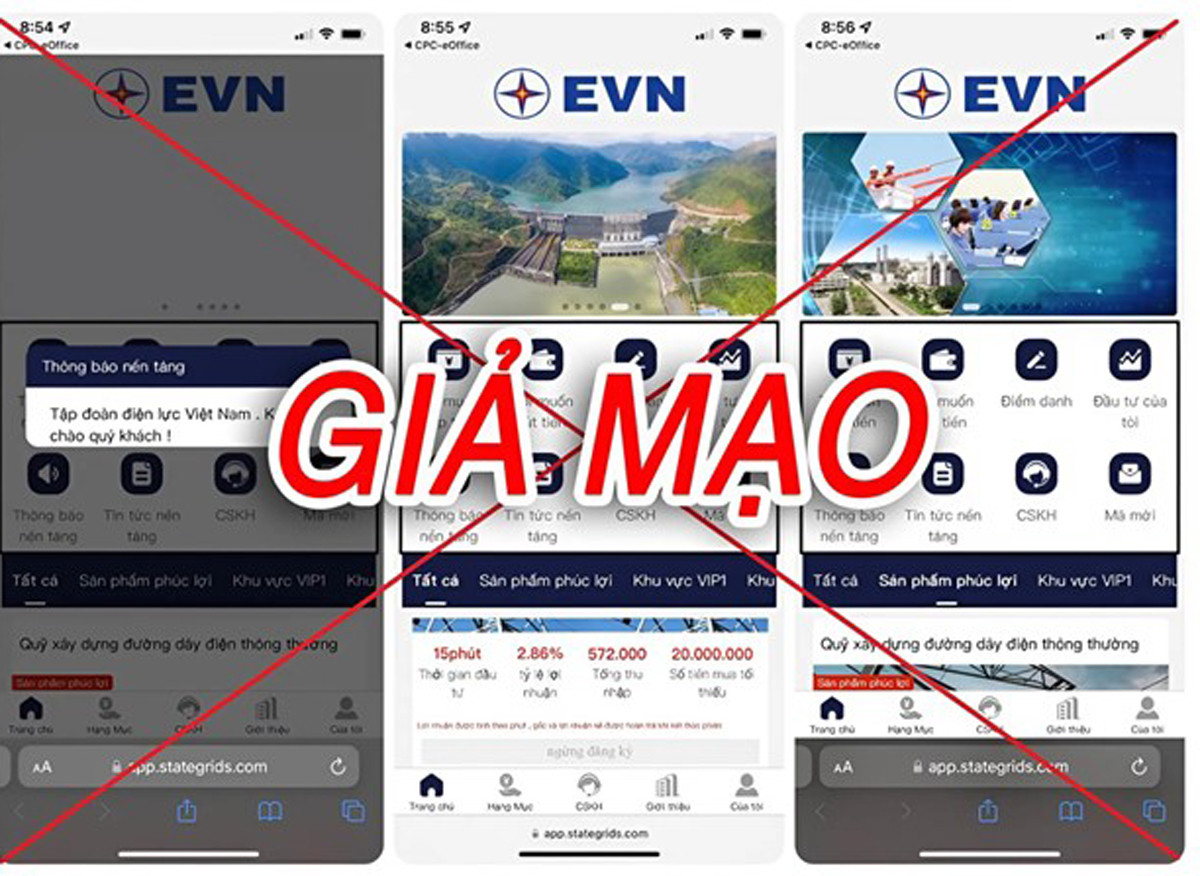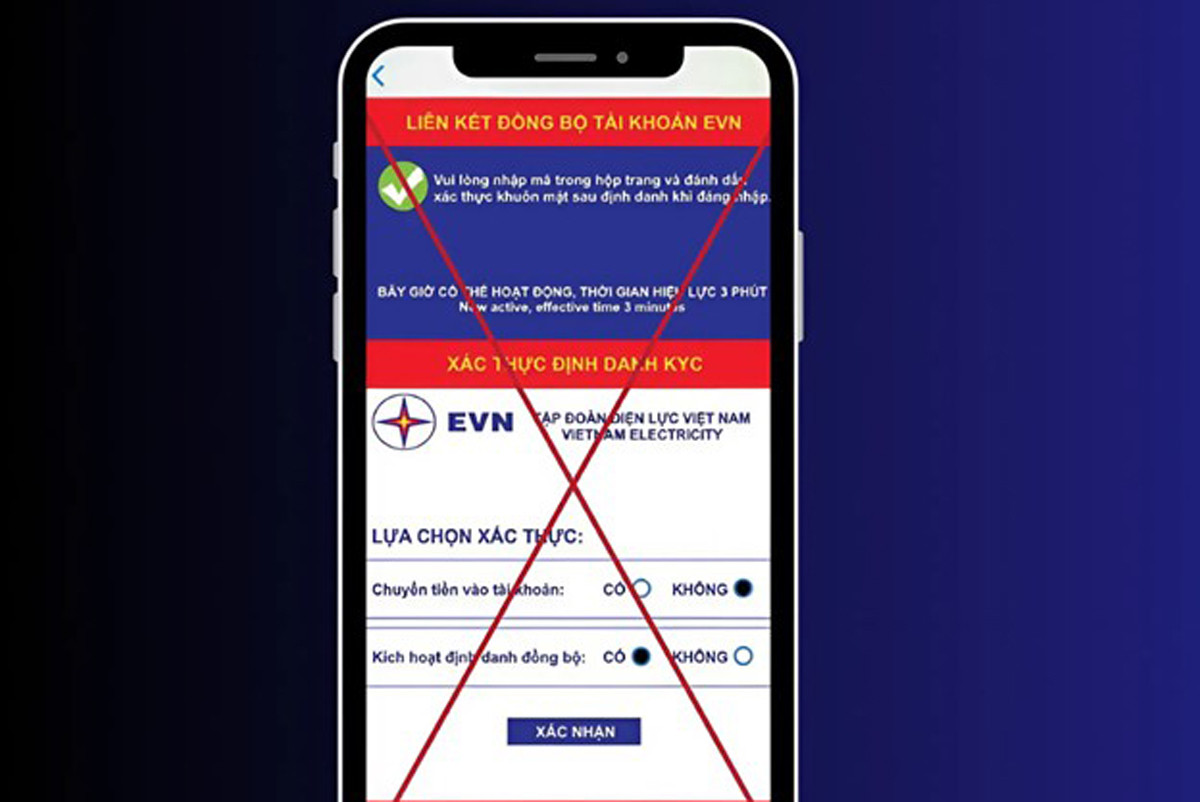The warning from the Department of Information Security (Ministry of Information and Communications) points out that scammers and impersonators of electricity employees often use the method of calling or texting via Zalo or SMS to notify that people are having problems with electricity bills such as: overdue, large debts, or technical errors in the system.
Specifically, scammers can also spoof the phone number of a power company employee, using caller ID spoofing technology to make their phone number appear similar to the official phone number of the power company.
This increases the credibility of the call and makes victims easier to trust.
Next, the scammer asks people to pay immediately through unofficial channels such as Zalo or bank transfers.
To add more pressure, they can threaten to cut off electricity immediately if payment is not made quickly, causing panic and thus making people to follow the request.

Fraudsters send messages via SMS or Zalo with fake content from power companies, asking people to pay electricity bills. Photo: NCSC
In addition to the trick of calling directly, scammers send messages via SMS or Zalo with fake content from the power company, asking people to pay electricity bills, and providing information such as Bank account numbers or fake links for people to access and make payments.
The message or call often has content like: "Notify that your electricity bill has not been paid this month. Please pay via the bank account below to avoid power cut" or "The system records your unpaid electricity bill. To avoid power cuts, please pay immediately."
After sending a text message or calling, the scammer can send a link to a fake payment website or an application impersonating the power company's website or app for customers to access.

Website impersonating EVN's electronic information page. Photo: NCSC
When people enter bank account information, OTP codes, or personal information into fake websites or applications, scammers will appropriate money and information.
Not only that, but to increase reliability, scammers investigate customers' names, addresses, and electricity bills... stolen from other sources.
More sophisticated, the scammer also sends a payment QR code designed with the logo of Vietnam Electricity - EVN, making the victim unsuspecting and scanning the payment code with the amount already entered by the subject.
The Information Security Department said that two power corporations Ho Chi Minh City Power Corporation - EVNHCMC and Hanoi Power Corporation - EVNHANOI have confirmed that they do not collect money via Zalo and SMS, and at the same time warned people not to pay electricity bills through these channels.

Application impersonates EVN's app to defraud and appropriate electricity users' assets. Photo: NCSC
To be able to prevent the above not-so-new but increasingly sophisticated scams, the Information Security Department recommends that people be wary of calls and messages from unknown individuals; Do not provide personal information via phone, Zalo, or SMS.
When receiving a request to pay electricity bills, users need to check the information through the power company's official channels such as the website and customer support call centers.
In case people receive a text message or email containing a payment request link, they need to check the legitimacy and avoid immediately accessing these links. People need to be careful not to download applications of unknown origin.
The Department of Information Security recommends that people make sure to pay for electricity bills through methods recognized by the power company, such as through banking applications, e-wallets, or direct payment at official collection locations.
“If you feel suspicious about a call or text message, please contact the power company immediately to confirm the information. In case of becoming a victim of fraud, people need to immediately report to the Police for timely support and resolution," the representative of the Department of Information Security suggested.
Translator: Vân Ly
Share